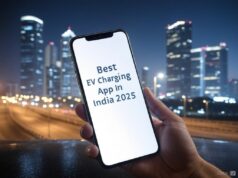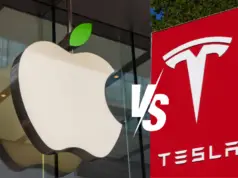Tesla owners may encounter a problem when trying to charge their vehicles using a CHAdeMO adapter or a regular charger.
The problem is indicated by an error message on the screen that says “Charge port latch not engaged”. This means that the charge port is not locking the plug securely and may affect the charging speed or availability.
In this article, we will explore the common causes of this error message and the steps you can take to troubleshoot the problem.
Why Tesla Charge Port Latch Not Engaged?
The charge port latch can fail to engage due to physical damage or debris accumulation in the charge port.
Additionally, software glitches can also cause the charge port latch to malfunction, preventing the vehicle from charging properly.
1. Broken or worn-out tips on the charge pins. The charge pins are the metal contacts inside the charge port that connect to the plug and transfer electricity.
Each pin has a black plastic tip that helps align and secure the plug.
If these tips are broken or missing, the plug may not fit properly and trigger an error message.
This can happen due to normal wear and tear, or due to using a faulty or incompatible charger.
2. Foreign objects or debris in the charge port inlet. This may prevent the plug from being fully inserted and engaging the latch mechanism.
This can happen if the charge port is exposed to dirt, dust, snow, ice, or other materials that can clog or damage the inlet.
3. Software glitch or communication error. Sometimes, the error message may appear even if the plug is locking and there is no visible obstruction in the charge port.
This may be caused by a software bug or a communication issue between the vehicle and the charger.
This can happen due to software updates, network issues, or other factors.
How to Fix Tesla Charge Port Latch Not Engaged Issue?
There are several troubleshooting steps you can take to address the “Charge Port Latch Not Engaged” error message on your Tesla vehicle.
These include cleaning the charge port, checking for physical damage, performing a soft reset, and contacting Tesla customer support for further assistance.
Remove any foreign objects or debris from the charge port inlet
Use a soft cloth or a brush to gently clean the inlet and remove any dirt, dust, snow, ice, or other materials that may be blocking it.
Do not use any sharp or metal objects that may damage the inlet or the pins. After cleaning, try re-inserting the plug into the charge port and see if the error message disappears.
Replace the Broken or Worn-out Tips on the Charge Pins
If you notice that some of the black plastic tips on the charge pins are missing or damaged, you may need to replace them. Tesla has issued a service bulletin for this issue and will replace them for free under warranty.
You can book a mobile repair service online or contact your nearest Tesla service center for assistance.
Reset the software or try a different charger
If there is no visible problem with the charge port inlet or the pins, and you still get the error message, you may need to reset the software or try a different charger.
To reset the software, you can reboot your touchscreen by holding down both scroll buttons on your steering wheel until it turns black and then releasing them. To try a different charger, you can use another CHAdeMO adapter or a regular charger that is compatible with your vehicle and see if it works.
Contacting Tesla Customer Support
If the above troubleshooting steps do not resolve the issue, contact Tesla customer support for further assistance. They can provide additional guidance and may need to schedule a service appointment to diagnose and repair the problem.
How to prevent this problem?
To prevent this problem from happening again, you can follow some simple tips:
Keep your charge port clean and dry. Avoid exposing your charge port to dirt, dust, snow, ice, or other materials that may clog or damage it. Use a cover or a cap to protect it when not in use. Clean it regularly with a soft cloth or a brush.
Use only compatible and certified chargers. Avoid using faulty or incompatible chargers that may damage your charge port or your vehicle.
Use only Tesla-approved chargers that are compatible with your vehicle model and software version. Check for any signs of wear and tear on your chargers and replace them if needed.
Update your software regularly. Make sure your vehicle software is up to date and has no bugs or glitches that may affect your charging experience. You can check for software updates on your touchscreen or on your Tesla app.
Conclusion
Tesla charge port latch not engaged is a common problem that can affect your charging speed or availability. It can be caused by foreign objects, broken tips, software issues, or other factors.
You can fix it by cleaning your charge port, replacing your tips, resetting your software, or trying a different charger. You can prevent it by keeping your charge port clean and dry, using compatible chargers, and updating your software regularly.







